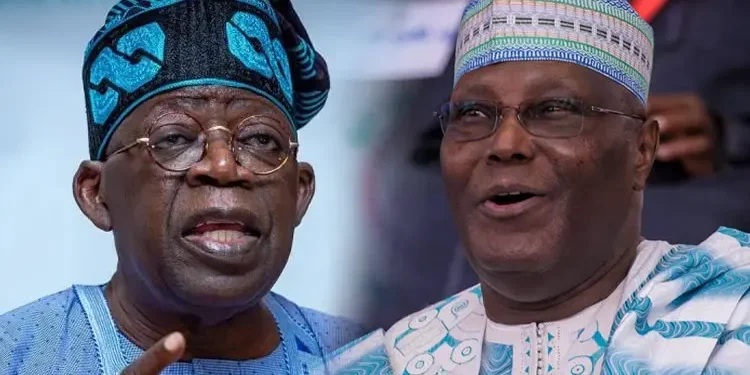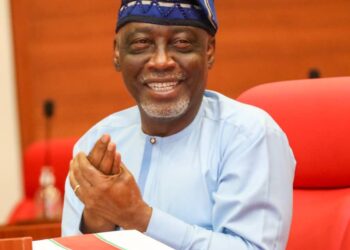Demola Olarewaju hit the nail on the head: “Tinubu’s headache at this point is the Opposition Coalition. Anything outside this coalition is simply a waste of time.” That observation is not hyperbole but history whispering a warning: no president who faces a united front of Nigeria’s progressive currents can rest easy.
Alhaji Atiku Abubakar today leads a constellation of forces whose pedigree stretches back decades ,and whose combined energies alone spell the end of hollow governance, with former President Obasanjo as the master strategist coordinating nationwide mobilisation, President Jonathan providing the necessary compromise among party factions, and President Buhari lending his nod to ensure policy continuity; this coalition’s depth becomes truly formidable.
Long before the PDP banner was raised in August 1998, Nigeria’s left‑of‑centre tradition was alive in the People’s Front (PF). Under Shehu Musa Yar’Adua, the PF incubated political visionaries like Atiku Abubakar, Bola Tinubu, Chuba Okadigbo, Tony Anenih, and Sunday Afolabi, each committed to national unity, pragmatic governance, and inclusive growth.
Alongside them marched remnants of the disbanded Progressive Solidarity Party (PSP) and the old UPN/AG lineage, champions of regional development and social welfare. In September 1989, the military regime forced the creation of the Social Democratic Party (SDP), chartered on September 27, 1989; its adherents went on to form another progressive current that survives to this day.
In August 1998, the PF/PDM network, the old SDP/UPN/AG fragments, the defunct NRC/NPN/NPC conservatives, and NPP/NCNC centrists converged to found the People’s Democratic Party, registered on August 24, 1998. Many were original members of the G‑34 professionals who had demanded an end to military rule and infused the new party with left‑of‑centre ideals.
Five groups signed the PDP’s founding “12‑Point Resolution”, the All Nigeria Congress, the Peoples Consultative Forum, the Social Progressives Forum, the Peoples Democratic Movement, and the National Centre Party of Nigeria, and its manifesto was painstakingly crafted by Chief Sunday Awoniyi’s committee, with the late Bola Ige among its luminaries.
From that great marriage of minds emerged a man whose gift was uniting people and resources: Atiku Abubakar. Onyeama Ugochukwu first dubbed him “The Bulldozer” during the 1999 Obasanjo campaign, a tribute not to brute force, but to Atiku’s uncanny ability to mobilise men and materials for a cause. His fellow architects of democracy,Prof. Babalola Borisade, Chief Ojo Maduekwe, Chief Yomi Edu, Senator Iyorchia Ayu, Prof. Jerry Gana, Haroun Adamu, and Gen. Aliyu Mohammed Gusau,all attest that Atiku never does anything by halves. “Look, you are good; you relate well with people. I think you will make a good politician, why don’t you join me in politics?” was Shehu Musa Yar’Adua’s prophetic invitation, and Atiku has more than justified it ever since.
Nigeria’s history of coalitions is anything but static. The Alliance for Democracy (AD) rose from pro‑democracy activists and regional movements. In 2006, a substantive faction of AD led by Bola Tinubu combined with the Advanced Congress of Democrats (ACD) led by Atiku supporters, a PDP breakaway, to form the Action Congress (AC). That became ACN, which in turn joined forces in 2013 with ANPP (formerly APP), CPC (est. 2009), and breakaway PDP governors to forge the All Progressives Congress (APC). Each realignment, born of necessity, ambition, or ideology, proves that coalitions cannot be boxed into rigid formulas; they emerge when shared urgency demands synergy, energy, resources, and ideas.
Let nobody dictate to us how a coalition must be formed, nor insist on a singular formula for assembling a new political force. When the Action Congress (AC) emerged, the Alliance for Democracy (AD) did not dissolve entirely into it. In fact, by the 2007 presidential election, the AD fielded its own candidate: Chief Adebayo Adefarati, former governor of Ondo State. Tragically, he passed away on March 29, 2007, just weeks before the April 21 election. Following his death, the AD nominated Chief Christopher Pere Ajuwa as its replacement candidate.
Likewise, when the All Progressives Congress (APC) was formed, the All Progressives Grand Alliance (APGA) did not simply vanish, Rochas Okorocha merely decamped to join the merger. Even the PDP did not collapse into the APC; instead, five PDP governors, led by Rt. Hon. Rotimi Amaechi, aligned themselves with the new coalition. These historical movements underscore a vital truth: there is no fixed formula for the revolutionary spirit that unseats an incumbent.
Today’s coalition under Atiku Abubakar is the inheritor of this dynamic tradition. It is neither convenience nor a fleeting electoral tactic. It is a gathering storm of inclusion and purpose: southern conscience, mid‑belt pragmatism, northern resolution, and youthful outrage. This alliance echoes 1998, when Nigeria first dared to believe in itself, built on compromise, ideology, and the relentless will to rebuild.
If history teaches anything, it is that no incumbent survives the combined force of a united opposition with a clear vision. This is Atiku’s Armada, and its destination is a new Nigeria: one where power serves purpose, where promises yield productivity, and where the measure of leadership is not titles held, but lives transformed.
Moreover, this coalition has outlined concrete policy priorities: generating over a million jobs annually through investment in agriculture and manufacturing; bolstering national security via community policing and intelligence reform; and restoring fiscal stability through transparent budgeting and targeted social programmes. These commitments show that the coalition is prepared to translate unity into tangible results. The Bulldozer is coming, and this time, he carries the whole of Nigeria on his back.









































